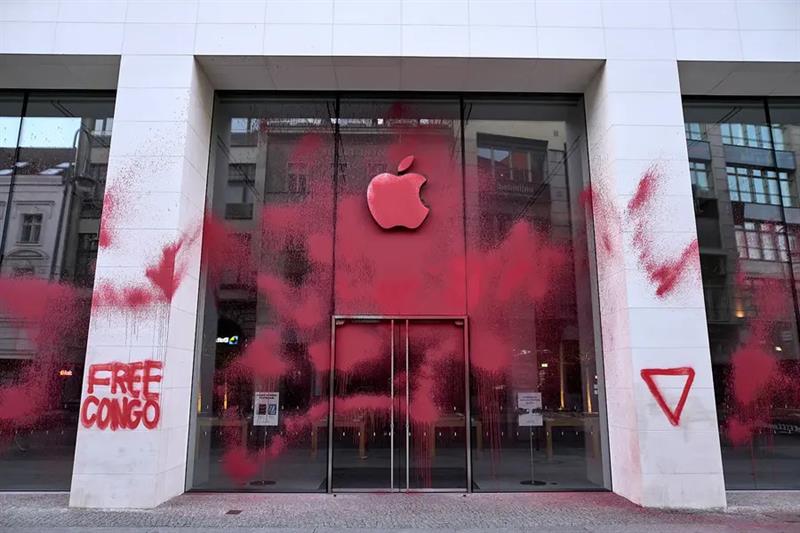The Democratic Republic of the Congo (DRC) has filed criminal charges against European subsidiaries of Apple, accusing them of illegally utilising “blood minerals” within their supply chains.
The DRC alleges that Apple has procured contraband materials from the country’s conflict-ridden eastern regions and Rwanda, where these minerals are purportedly mined illicitly. These minerals are then integrated into global supply chains, ultimately finding their way into Apple’s technological devices.
Lawyers representing the DRC assert that Apple’s French and Belgian subsidiaries have employed deceptive commercial practices to mislead consumers into believing their supply chains are ethically sourced.
AFP has confirmed that complaints against Apple have been lodged in Paris and Brussels. These complaints encompass allegations of war crimes, money laundering, forgery, and deception.
In April, the legal team directed inquiries to Apple CEO Tim Cook, along with the company’s French subsidiaries, regarding the potential inclusion of pillaged minerals within its supply chain. However, they received no substantive responses.
Robert Amsterdam, the DRC’s Washington-based lawyer, described the case as a “first salvo” in a series of legal actions.
“Colour Apple red, not green,” he stated. “It is a trillion-dollar company that must be held accountable for the consequences of its actions. Enough with denials of responsibility and hiding behind the false narrative of ethical supply chains!”
Paris-based lawyer William Bourdon emphasised that these criminal complaints represent “a crucial step towards holding one of the largest players in the tech industry accountable for its pursuit of endless enrichment at the expense of the grave crimes plaguing African supply chains.”
Brussels-based lawyer Christophe Marchand added that “these complaints filed against Apple are a matter of significant public interest at a time when European nations, consumers, and non-governmental organisations are intensifying their scrutiny of international supply chains.”
The production of computer chips and technological devices necessitates a wide array of minerals and specialised metals.
The lawyers contend that the scale and duration of these alleged activities have inflicted “unimaginable harm and suffering” upon civilians. They argue that these practices fuel violence and conflict by financing militias and terrorist groups, while also contributing to forced child labour and environmental devastation.
They further cited investigations conducted by the United Nations, the US State Department, and international NGOs such as Global Witness, which have documented the extent of this problem.
The lawyers have also communicated with European Commission President Ursula von der Leyen, informing her of the criminal complaints and requesting a dialogue on the EU’s role in promoting accountability and ending armed violence within sub-Saharan Africa’s mineral supply chains.
Apple asserted last year that it had “no reasonable basis for concluding” that its products contain illegally exported minerals from conflict-affected zones. The tech giant has consistently maintained that it rigorously verifies the origin of materials used in its manufacturing processes.
Rwanda has also dismissed these allegations as unfounded. “This is merely the latest attempt by the DRC government to deflect attention from domestic issues by making false accusations against Rwanda,” stated Rwandan government spokesperson Yolande Makolo.
The mineral-rich eastern region of the DRC has been plagued by violence since the 1990s. Tensions have escalated since late 2021 with the renewed offensive of the M23 rebels, backed by Rwanda, in the DRC’s North Kivu province. Kinshasa has accused Rwanda of utilising the M23 to gain control over resource-rich areas of eastern DRC.



